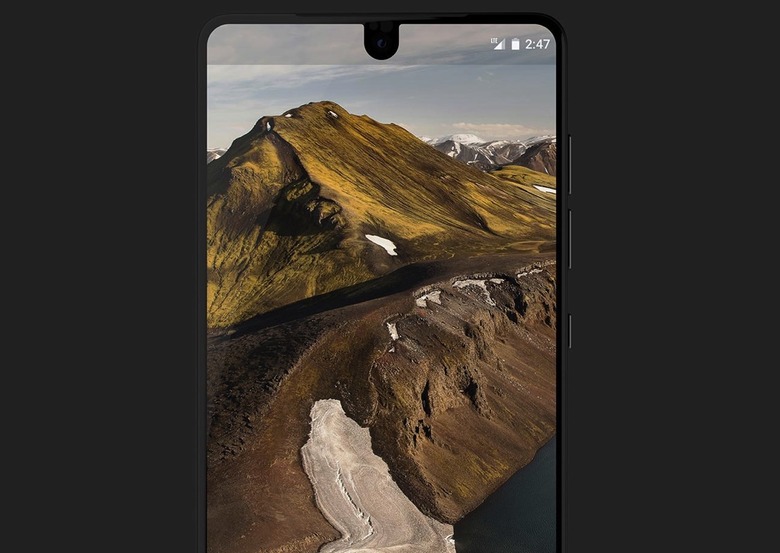Andy Rubin Wants The Next Essential Phone To Text And Email Back For You
There was a lot of excitement around the Essential Phone, Andy Rubin's daring smartphone, last year. But the handset turned out to be a huge disappointment in terms of actual sales, prompting speculation that the company would perish, in spite of enormous interest from investors. But a new report claims that the father of Android has reshuffled Essential's priorities, choosing to focus on a smartphone that could revolutionize the mobile industry. Or so Rubin seems to think.
The phone, which could be shown off privately as soon as January at CES, would be more of a companion phone of your existing phone. At least at first. The object of the unnamed Essential device is to answer emails and texts for you, to essentially replicate you while you spend time doing other things. Hopefully, it'll keep you updated on all the texting and calling it does on your behalf, but that's not entirely clear.
People familiar with Rubin's plans shared details about the handset with Bloomberg. Essential paused the planned home speaker and canceled a second smartphone to focus on the new smart device.
The Essential would have a smaller screen than what you'd expect from a smartphone these days, and it'll require users to interact with it via voice commands to Essential's AI software. Per Bloomberg, the phone would be similar to the devices in the sci-fi movie Her, in which a human falls in love with an operating system that powers all his devices, including a pocketable phone with no screen. "Rubin would like to capture people's imagination with a product that's truly different from alternatives," Bloomberg says.
Furthermore, Essential plans to market the device as a companion to your primary phone, or as a phone for people who want to curb their smartphone addiction.
But Google is also working on features that replicate the user for Android. Just earlier this week, Google unveiled the Pixel 3 phones, which will get Duplex (a feature that lets the Assistant make reservations via voice) and Call Screen (a feature that allows the Assistant to talk to spam callers). Also, Gmail offers automated replies, and the Pixel 3 will be the first phone to support Gmail's Smart Compose, the feature that offers written suggestions as you type your response.
Apple, meanwhile, is rumored to be working on AR glasses that could somewhat replace the need for checking the iPhone all the time and maybe even replace the phone altogether down the road. As for new handset form factors, Samsung, Huawei, Apple, Lenovo, and others are creating foldable smartphones, with the first two companies expected to launch such devices next year. All these handset vendors are developing their own AI products, including smarter voice assistants. And many of them are looking at ways to reduce screen time for users.
In other words, it'll be challenging for Rubin to create a new groundbreaking smartphone experience, given the huge gap between Essential and its competitors when it comes to making and selling phones. But that doesn't mean this tiny, AI smartphone doesn't sound interesting. At least on paper.
